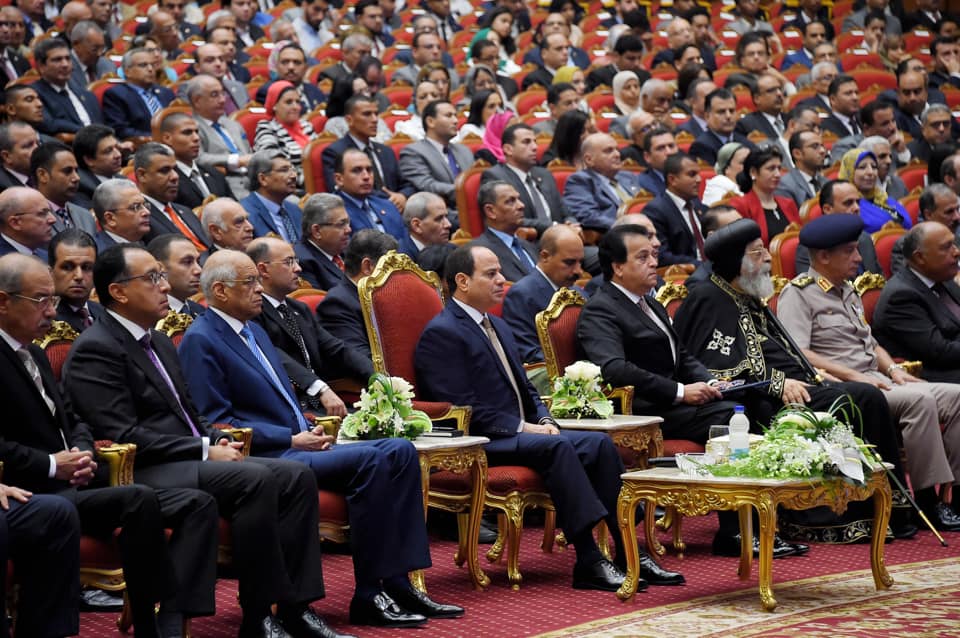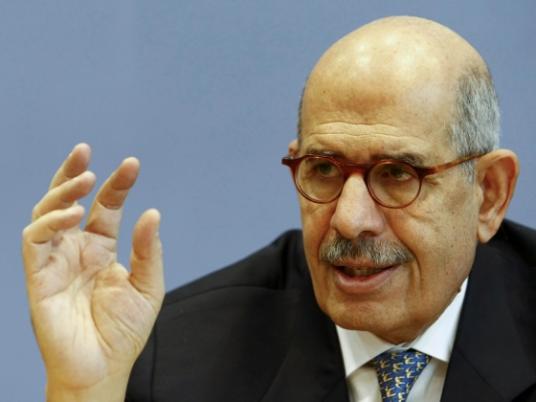The Supreme Council of Culture, headed by Culture Minister Emad Abu Ghazi, announced the winners of the state's 2011 cultural awards on Saturday evening.
The Nile Awards (previously named after Hosni Mubarak) are the highest and most prestigious of Egypt's state awards. Satirist Ahmed Ragab received the literature award; the arts award went to architect Aly Raafat, a professor of architecture at Cairo University; and the social sciences prize went to leading anthropologist and formerly an expert at the UN International Labor Office Ahmed Zayed. Each receives LE400,000 for his work.
The shortlist spurred controversy last week as it included Laila Tekla and Aly al-Din Helal.
Tekla is the former chairperson of the Shura Council's Foreign Relations Committee, and is accused of accepting bribes from the Lockheed Corporation. Helal was media secretary of the now disbanded National Democratic Party. He apologized for the nomination, because he is known for orchestrating the inheritance project for handing power to Gamal Mubarak.
The Supreme Council of Culture has 61 members. Thirty-two are appointed by the state and the rest are representatives of relevant ministries and syndicates, as well as the heads of the Culture Ministry departments. The make up of the panel was often criticized by intellectuals and cultural workers, who saw it as a way for former culture minister Farouk Hosni to affect the voting process.
But this year, Abu Ghazi allowed the press to attend the voting – a demand repeatedly rejected by Hosni. "This year's voting will be broadcasted to journalists live if the members agree," said Abu Ghazi, adding that a suggestion to use an electronic voting system to ensure transparency is being considered.
The State Merit Awards (Taqdyriah) in literature – each worth LE200,000 – went to authors Abdel Wahab al-Aswani, Fouad Kandeel and Shams Hagagy. In the arts, Salwa al-Ghareeb, secretary general of the Supreme Council of Universities, and actor Mohammed Hanaa Abelfattah received awards, whereas historian Ahmed Zakaria al-Shalaq got the award in the field of social sciences.
The State Distinction Awards (Tafawoq), worth LE100,000, went to the late professor of the history of the Middle Ages, Aboel Yousr Farag, professor of philosophy Yomna al-Kholi, and the late author Edrees Ali.
Thirty-two State Incentive Awards (Tashgi’yah) worth LE50,000 were also announced, stirring discussions about the logic of granting an incentive award to a dead intellectual. Gaber Asfor, former culture minister, objected to giving the prize to late critic Abdel-Hakim Hassan, who passed away in 2009. Abu Ghazi, however, followed the jury’s decision, explaining that the law does not exclude those no longer alive from winning the prize.



